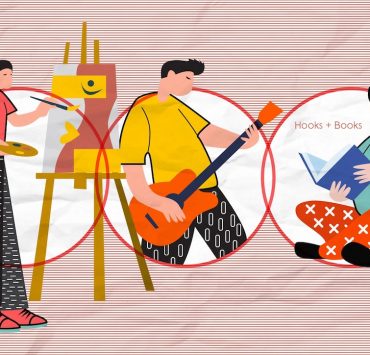Healing your inner child

On the morning of Nov. 3, in my usual unhealthy ritual of scrolling through X (formerly Twitter) before even getting out of bed, I found myself drowning in a sea of terms like “tibaklout” and “healing your inner child.” Apparently, one user was labeled a “tibaklout”—a not-so-flattering term for those who exploit their activism identity for social media fame—after they quote-retweeted a post and asked, “Bakit kaya kapag sinabing ‘healing my inner child,’ kailangan konektado sa konsumerismo? (Why is it that when we talk about ‘healing my inner child,’ it has to be connected to consumerism?)”
This makes me reflect on my upbringing and the values instilled in me during my childhood.
I come from a family that had next to nothing, and even now, not much has changed. But as a kid, I never felt we were poor. My father worked as a construction worker, while my mother ran a small sari-sari store that barely made enough. Even so, my parents poured all they had to make us feel secure.
It wasn’t until high school that I started noticing the little luxuries other kids took for granted: fancy toys, their own TV, even a box of more than eight crayons. Yet, instead of feeling resentment, I found myself filled with pride at how my parents had managed to raise me in a world that felt full, even when there was barely enough to go around.
But when I landed my first job, I felt a fierce longing to “treat myself,” to dive into the little frills I had always craved. I could almost hear the siren call of a Happy Meal, the thrill of picking out a new shirt. But it wasn’t so much the trendy notion of “reparenting” my inner child, because each time I splurged, I wasn’t mending old wounds; I was celebrating a hard-fought journey and savoring the sweetness of a life that had finally opened its doors to me.
But my journey doesn’t erase the truth that for many of my generation, the idea of “healing their inner child” often manifests through their purchase of tangible goods, a means of filling the void left by neglect or hardship. Whether it’s the allure of a trendy outfit or the excitement of the latest gadget, these purchases can feel like a way to reclaim lost joy—an attempt to bridge the gap between what was and what they wish could have been.
In our culture, where self-care often intertwines with consumerism, it’s easy to conflate these heartfelt gestures with mindless excess. Consumerism, the relentless urge to consume and accumulate, has earned a bad reputation. But instead of directing blame at individuals who share their healing journey through their purchases, why not focus on the corporations that exploit these desires?
These big corporations thrive on our insecurities and craft narratives that suggest happiness is just a purchase away. They inundate us with advertising that plays on our emotions and encourage us to seek fulfillment through their products. So, why do we feel compelled to call out those who indulge in these experiences? Is it to project ourselves as morally superior?
Labeling those who indulge in experiences they didn’t get to enjoy before as mere consumers is an oversimplification. It’s akin to blaming uneducated voters for “trapos” who win elections, while ignoring the systemic issues that shape their choices. Instead of casting judgment, we should be having deeper conversations about the structures that perpetuate this cycle of consumption and the emotional void it seeks to fill.
Healing requires feeling. Every time I glance at my Pokémon toys, I’m hit with an instant rush of joy, whisking me back to my childhood when all I could afford were “teks” game cards. In those moments, I can’t help but feel a surge of empathy and compassion for others who are still in the thick of their struggles.
Not everyone finds healing in the same way, and that’s okay. When we judge how others cope, we overlook an important truth: if their purchases make them feel joy, comfort, or connection, and if those feelings lead them to greater compassion for themselves and others, then their actions are not fruitless. They are valid expressions of self-care, and a journey worth celebrating.
Allow yourself to heal, and do it responsibly. Embracing your journey authentically is far more fulfilling than performing the role of the oppressed, or tweeting from the comfort of an air-conditioned room far removed from the very struggles you claim to understand.
—————
Ralph Revelar Sarza is a TV, film, and culture critic. Follow him on Instagram and X @walphs.

















